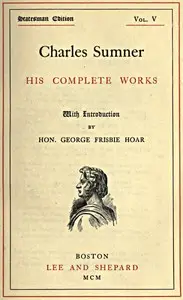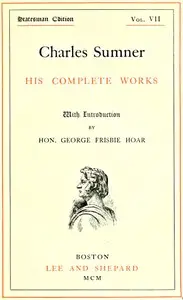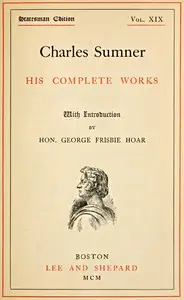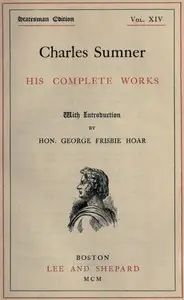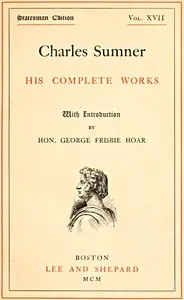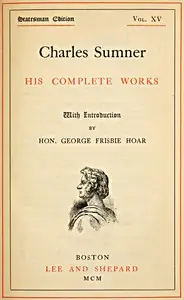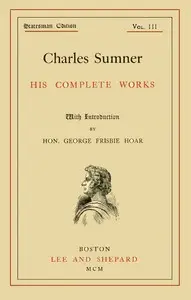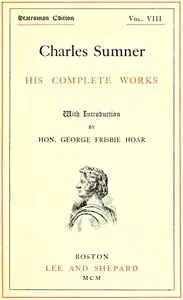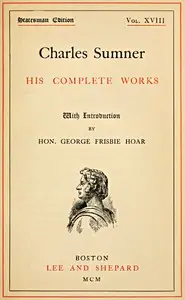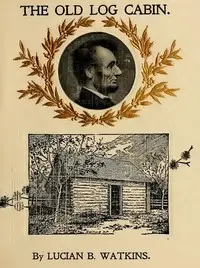"Charles Sumner: his complete works, volume 20" by Charles Sumner is a collection of speeches and writings delving into the significant political and social issues of 19th-century America. The volume highlights Sumner's efforts to advocate for civil rights, uphold government integrity, and shape international relations. Sumner argues in the Senate for suitable representation among the States and ethical governance while also addressing the country’s role in international conflicts, laying bare his commitment to reform. His words reveal the context of a nation wrestling with corruption and its place on the world stage.
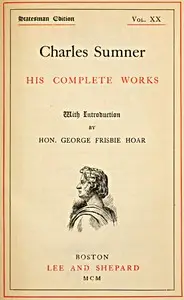
Charles Sumner: his complete works, volume 20 (of 20)
By Charles Sumner
Discover how one man's powerful words ignited debates on civil rights, government conduct, and America's place in a changing world.
Summary
About the AuthorCharles Sumner was an American lawyer, politician, and statesman who represented Massachusetts in the United States Senate from 1851 until his death in 1874. Before and during the American Civil War, he was a leading American advocate for the abolition of slavery. He chaired the Senate Foreign Relations Committee from 1861 to 1871, until he lost the position following a dispute with President Ulysses S. Grant over the attempted annexation of Santo Domingo. After breaking with Grant, he joined the Liberal Republican Party, spending his final two years in the Senate alienated from his party. Sumner had a controversial and divisive legacy for many years after his death, but in recent decades, his historical reputation has improved in recognition of his early support for racial equality.
Charles Sumner was an American lawyer, politician, and statesman who represented Massachusetts in the United States Senate from 1851 until his death in 1874. Before and during the American Civil War, he was a leading American advocate for the abolition of slavery. He chaired the Senate Foreign Relations Committee from 1861 to 1871, until he lost the position following a dispute with President Ulysses S. Grant over the attempted annexation of Santo Domingo. After breaking with Grant, he joined the Liberal Republican Party, spending his final two years in the Senate alienated from his party. Sumner had a controversial and divisive legacy for many years after his death, but in recent decades, his historical reputation has improved in recognition of his early support for racial equality.

